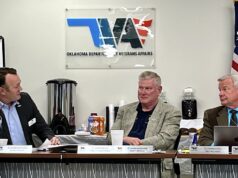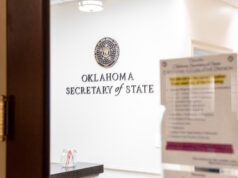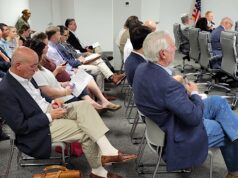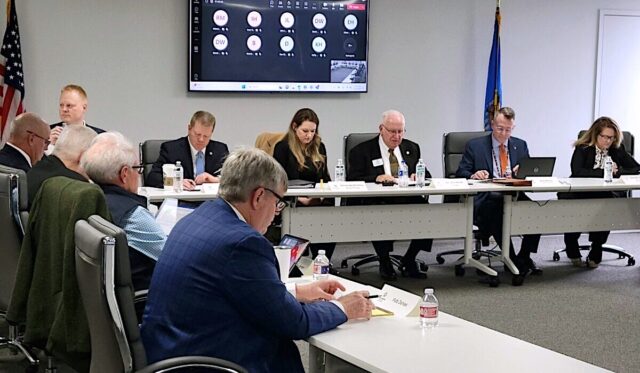

Work should start later this year on bringing high-speed internet service to about 55,000 unserved or underserved homes or businesses in 57 Oklahoma counties as a result of the Oklahoma Broadband Governing Board today awarding 142 projects.
“This is going to do so much to help rural Oklahoma economically,” board Chairman Jim Meek said. “It’s going to improve health care for a lot of individuals and families that are somewhat isolated. (…) This was as transparent a process as we could possibly make it. This is about serving the unserved and the underserved. That was our primary focus, and most of those were located out in the very rural areas.”
The projects will be financed mostly by $374 million of federal American Rescue Plan grant money allocated to the board by the Oklahoma Legislature. The 31 internet service providers selected today — 29 of which are Oklahoma companies — are required to pay for a share of their project costs and complete an agreement with the OBO by the end of next week.
Without the allocation of federal funds, some unserved and underserved areas of the state likely would never get high-speed internet service, Meek said.
“It just costs more in sparser-populated areas to take broadband to them, whether it’s fixed or cable,” he said.
The ISPs’ local shares for the projects will total more than $90 million, which will bring the total investment to nearly $500 million, said Mike Sanders, executive director of the Oklahoma Broadband Office.
Sanders called the board’s action historic.
“Two-thirds of the state will have a project,” he said.
Most of the projects were awarded in rural areas of the state. Cox and AT&T each were awarded several projects, but smaller companies also won bids. About 80 percent of the projects are fiber-based and the remaining 20 percent are fixed wireless.
“When you look at the number of telephone companies, look at the number of rural electric companies, family-owned companies, moms and pops, investor-owned wireless companies, it’s a great mixture of diverse companies,” Sanders said.
Ten companies that submitted bids were not awarded a project, he said. They either realized it wasn’t feasible for them to continue with the project or they didn’t submit the proper information in their applications.
Staff assigned each company a number so the names were not known during the review process, Sanders said.
“We looked at those areas that were unserved and underserved,” he said. “It was way after the fact before we even know what companies won or were awarded those areas.”
Click to download:
ARPA projects approved Jan. 25
Internet ARPA projects face October 2026 deadline
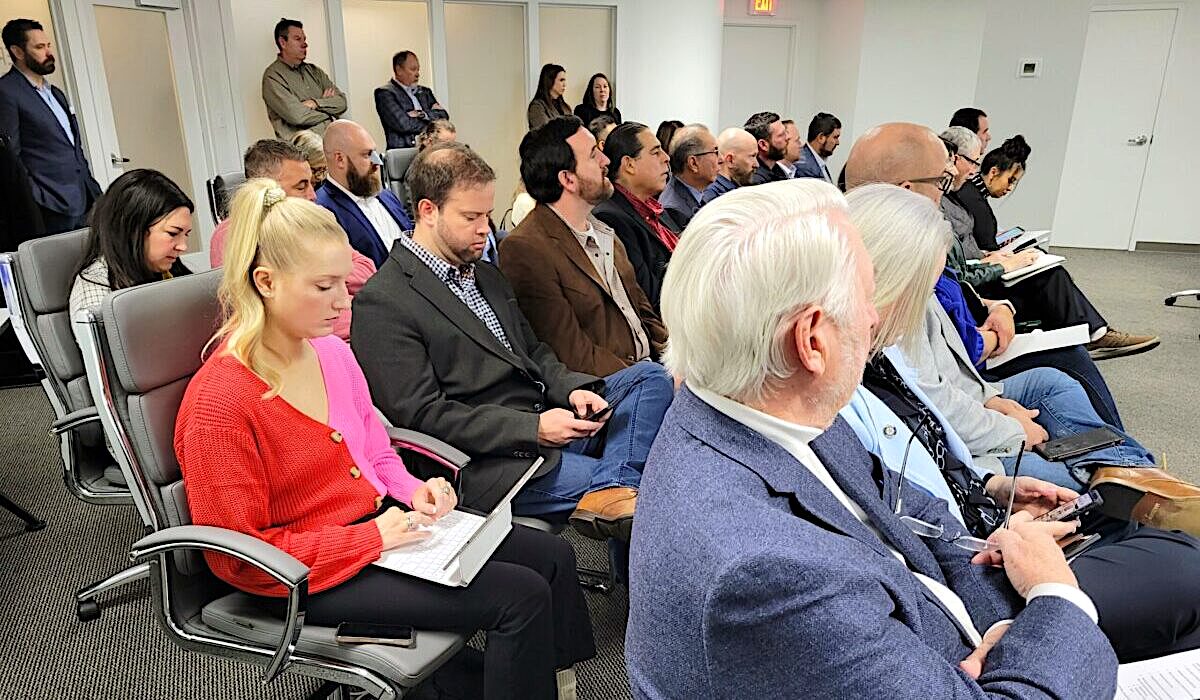
Once all necessary agreements are completed, construction can begin on the projects. Work must be completed before the end of 2026, Sanders said. If an approved provider chooses to withdraw participation, funding will move to the next project on the list until available funding is obligated. Board members must approve any changes.
“This entire program has a little less than two years to not only get shovels in the ground and the fiber laid or the towers built, but it has to be operational by early October of 2026,” he said. “We do know that there will be some companies that will get their particular projects done sooner than that.”
After launching a new process for ISPs to seek $374 million in ARPA funding for expanding access to reliable and affordable high-speed internet service in Oklahoma, the OBO received 326 applications by the Oct. 9 deadline to apply. The applications totaled about $5.1 billion, far surpassing the amount available for this round of projects.
Previously, 133 ISPs filed applications totaling about $4 billion of ARPA funds. They were selected from a batch of proposals submitted through the state of Oklahoma’s ARPA portal in 2021, before the Broadband Office was formed, and 2022.
The OBO discarded its original proposals in August after hearing complaints from ISPs and concerns from its governing board members. Sanders said a review of the previously proposed projects and supplemental inquiries showed that some of the state’s most challenging geographical areas would not be serviced under the OBO’s original criteria.
The OBO staff reviewed the latest proposals last fall and sent their recommendations to a subcommittee of the governing board. Applicants were scored on a variety of factors, including workforce standards that provided points if a project is governed by “a project labor agreement” and “a community benefits agreement that offers wages at or above the prevailing rate.” Points were also provided if a project applicant proposed high safety standards and committed to hiring “local workers” and “workers from historically underserved communities.”
OBO staff last month reviewed the projects in an effort to avoid awarding grant funds to homes and businesses with existing or planned service. Successfully contested locations were removed from funding consideration, and revised proposals were submitted.
Before the grant review subcommittee chairman, Dwight Hughes, presented the 142 applicants to the board for approval Thursday, board Chairman Jim Meek and member Fob Jones left the room because they said they had a potential conflict of interest. Board Vice Chairwoman Amanda Mullins noted that the board still had a quorum and then read each of the applicants, the counties and the number of unserved or underserved people they would serve.
All of the projects were approved 6-0 unanimously after individual roll-call votes. The voting process took about two hours.
This is the first grant program administered by the OBO. Others will follow, including $159 million from the ARPA Capital Projects Fund and $797.4 million in Broadband Equity, Access and Deployment (BEAD) funds. The BEAD money is expected to be awarded in spring or summer of 2025.











